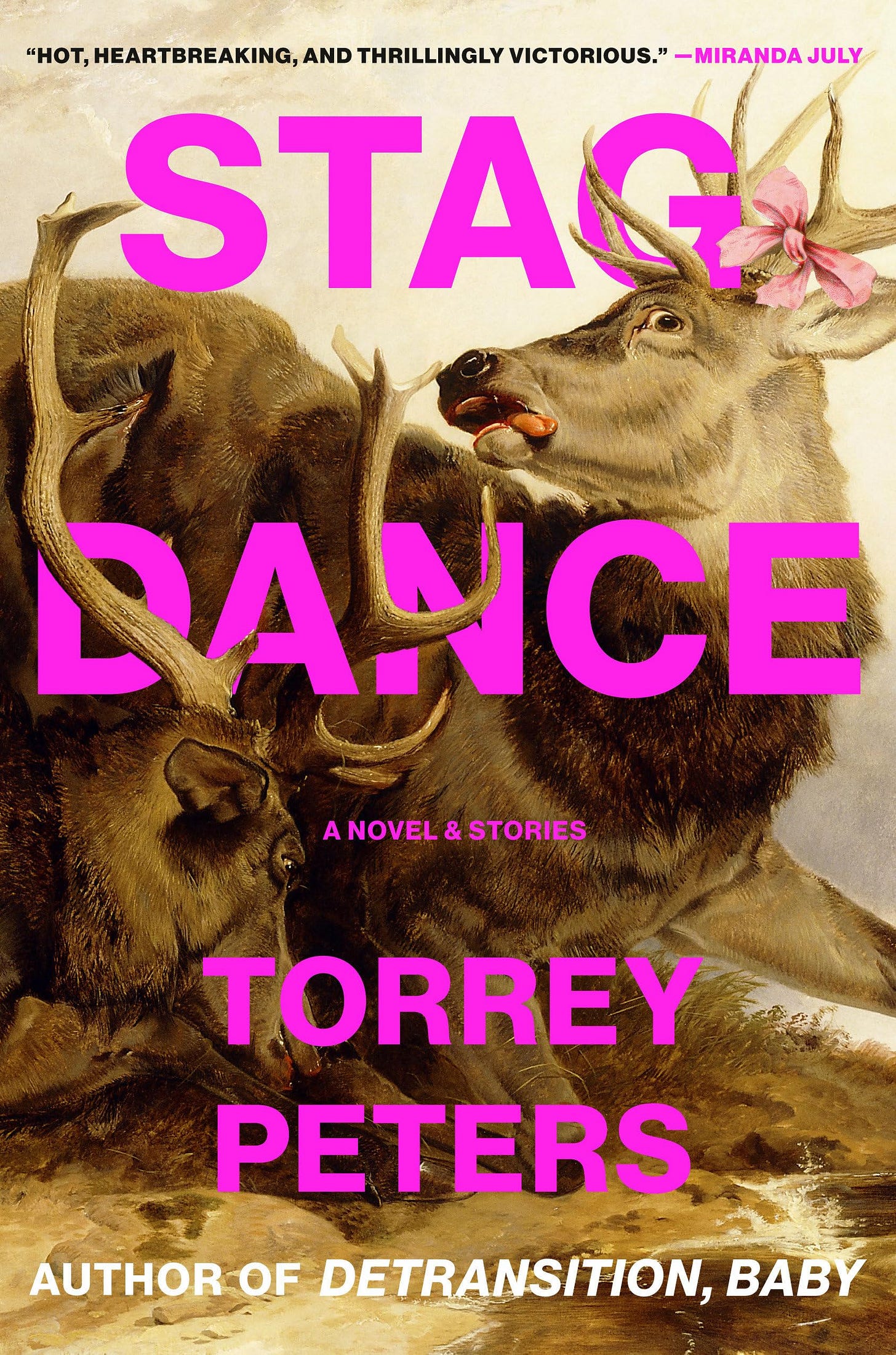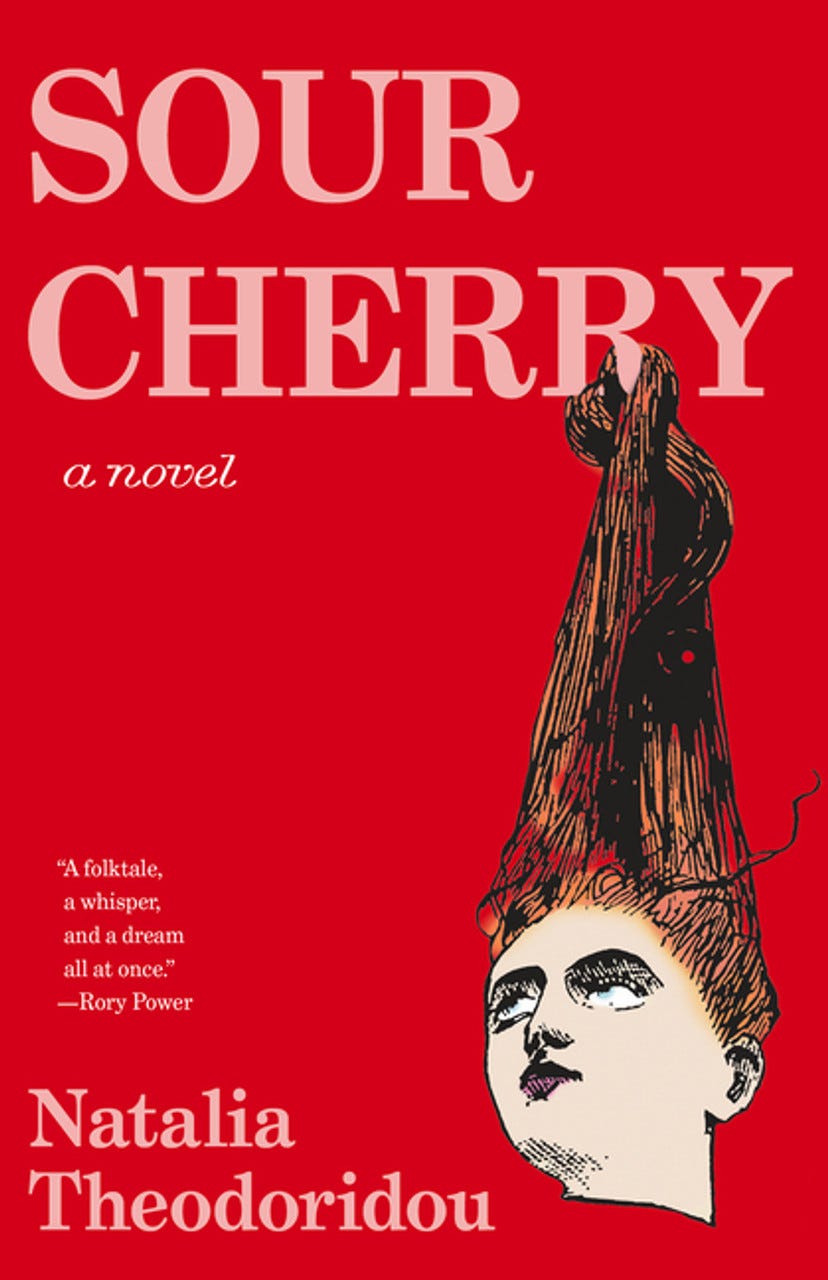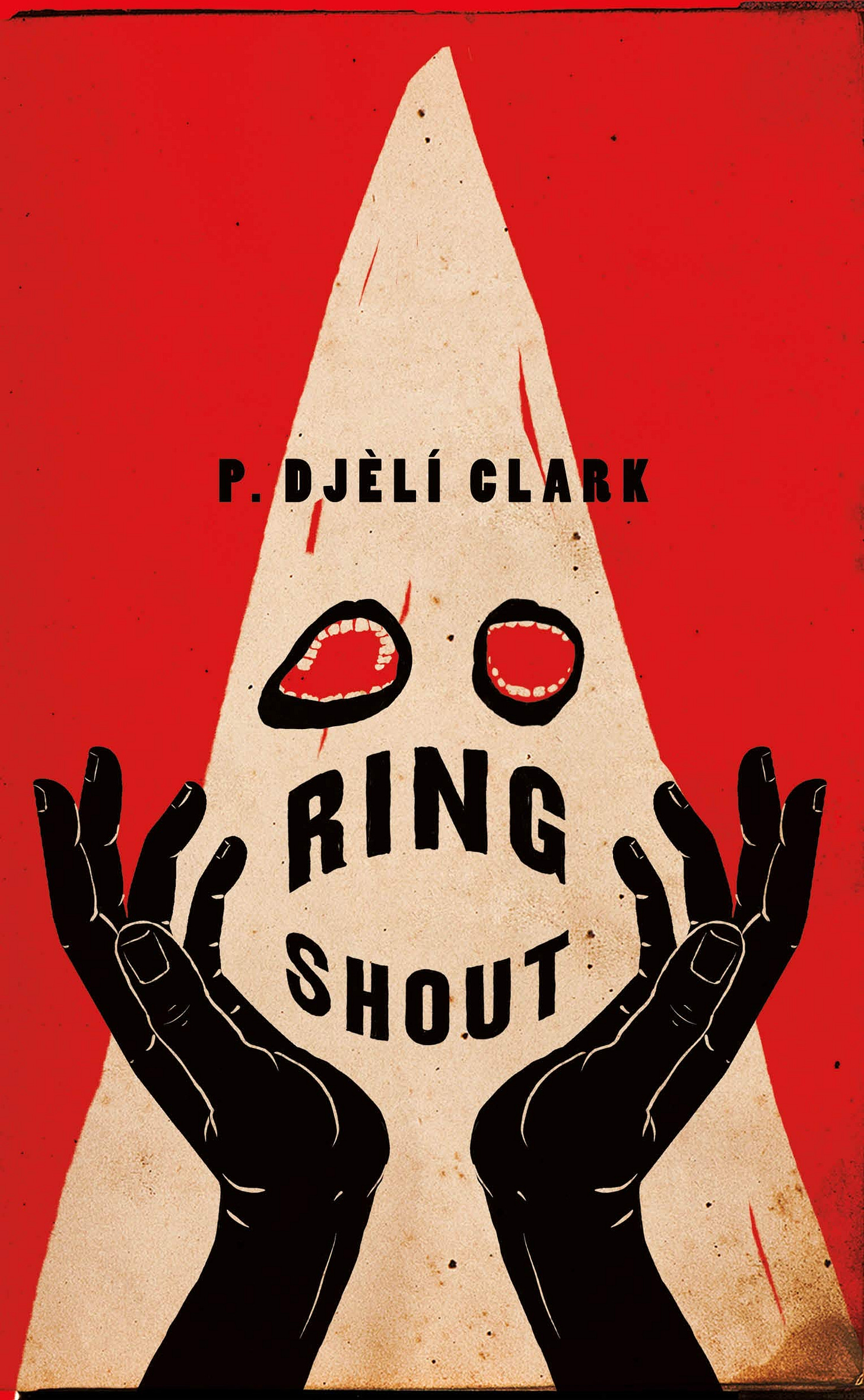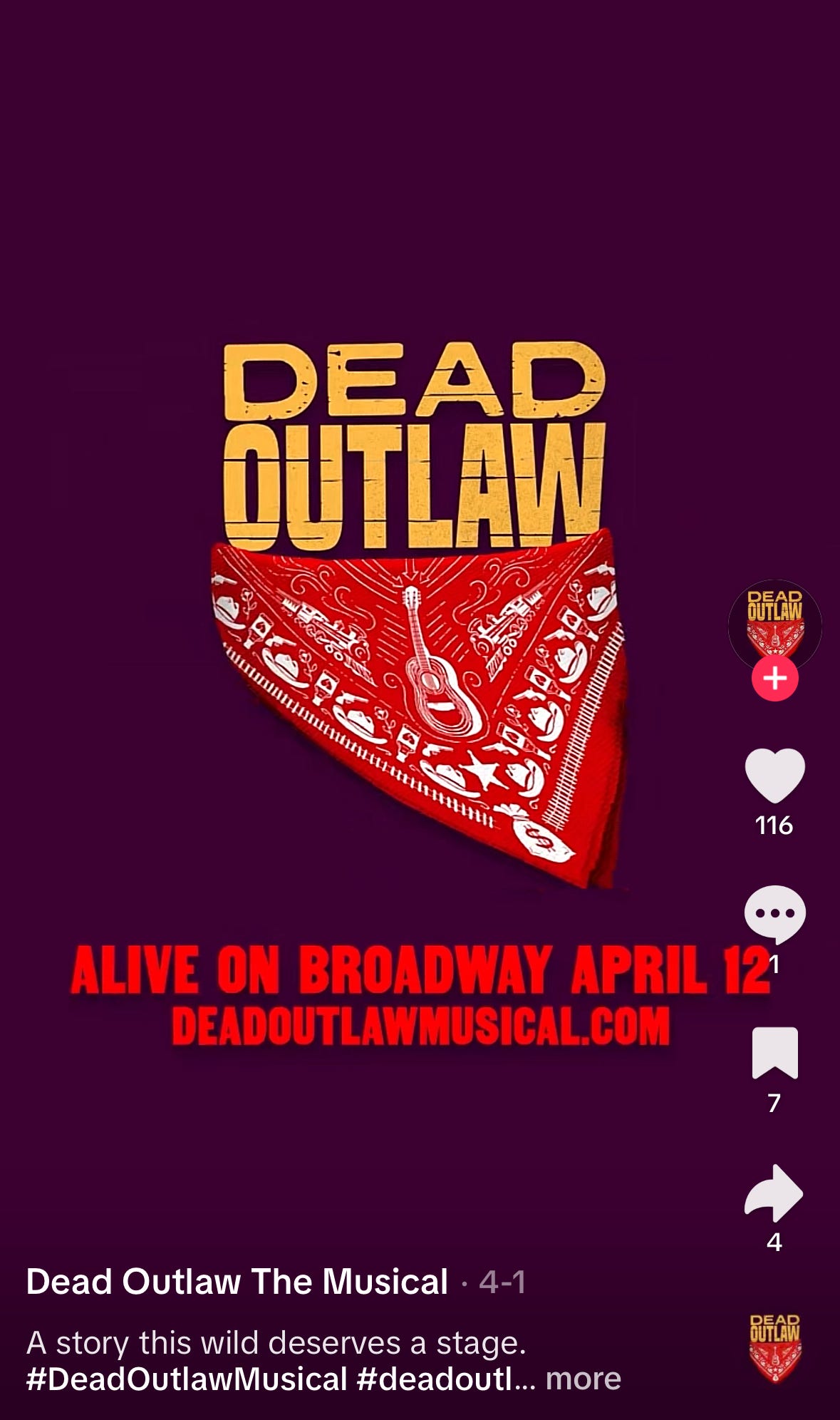What I Read in April
Everyone is having a family or gender crisis—and sometimes both.
Alienated Young Woman publishes book recommendations, reading diaries, and semi-regular reviews of fiction, TV, and film. Subscribe for free to receive new recommendations in your inbox twice a month.
This month was about “doing something different,” in that I tried very hard to read a few novels I will not name here and struggled so much to stay with them that I decided I could not read another dramedic coming-of-age novel about a sad 24-ish-year-old woman who lives alone until the feeling went away. At the bookstore, I picked up only novels I thought would break the generic confines: Torrey Peters’ hard-to-categorize story collection Stag Dance, Nick Medina’s murder mystery Sisters of the Lost Nation (reviewed last month), and Silvia Park’s speculative sci-fi family saga Luminous.
Ultimately, they didn’t completely dispel the feeling, but they have set me on a continuing path of magical realism and horror. The novels I picked up next—Natalia Theodoridou’s Sour Cherry, P. Djèlí Clark’s Ring Shout, and Lucy Rose’s The Lamb (which I haven’t yet finished)—all get closer to my original niche, with young woman protagonists who are forcibly isolated, if not socially alienated in the Sylvia Plath, Ottessa Moshfegh sense.1 In another world, they may well have languished with an emotionally detached situationship and financially infeasible major city apartment, but they have other shit going on. It’s not the first of their priorities, but they are Gothic in the truest sense: capturing an aesthetic of haunting. So maybe, in a slow, gradual way, I am returning to one original niche, if not the other.2 Only time will tell.
Stag Dance by Torrey Peters (Random House, 2025)
When Detransition, Baby hit shelves four years ago, there was no denying the gold mine that is Torrey Peters’ mind. It was a family saga dramedy miles ahead of its genre contemporaries, with a distinct voice that let each character feel lived-in and real without feeling autobiographical.
Within the first page, Stag Dance has it beat for originality. Peters’ follow-up collection—the titular novella plus three short stories—brings together a decade of the author’s strangest, most intricate and singular musings. In “Infect Your Friends and Loved Ones,” a trans woman navigates a post-apocalyptic US, reminiscing on her lost lover while harboring a secret: she was Patient Zero of the plague that started this apocalypse. In “The Chaser,” Peters imagines an almost-familiar setting—an all-boys’ boarding school where two high school roommates are slowly uncovering their feelings for each other—but reserves her last few pages for the utterly bizarre. The final story, “The Mask,” imagines Poe’s “Masque of the Red Death” in a trans girl meetup at a Vegas casino.3
Then there’s the title novella, Stag Dance, for which there are almost no words. In a mountainside forest, another place and time, a group of loggers struggle through a bleak winter amid growing fear of a folkloric monster, the Agropelter, who is said to wonder the woods. Attempting to raise morale, their charismatic boss organizes a dance—the catch? For the plan to work, a select few loggers will need to volunteer to attend the dance in drag. It’s all too fitting that Peters’ narrator, the biggest, strongest, macho-est logger of the bunch, is the first volunteer. It’s what happens next that puts the haunting, brilliant novella in a class of its own. Stag Dance is a ghost story, a tragedy, an inside-out cryptid cautionary tale, AMC’s The Terror if it had somehow gone worse. It’s magical. Peters has struck gold—again and again and again.
Luminous by Silvia Park (Simon & Schuster, 2025)
In my attempt to try something different, I somehow stumbled into even more alienated young women. Sisters of the Lost Nation placed two at the center of its mystery-thriller format, Stag Dance featured at least one in The Road-like circumstances. But in Luminous, its alienated young woman status is almost a misnomer—24-year-old depressed engineer Morgan is the least interesting member of its ensemble cast.
Set in a reunified Korea of the near future—where robots are ubiquitous and nearly indistinguishable from humans—Luminous follows Morgan and her older brother, Jun, nearly 20 years after an unspoken event that rocked their family and caused a permanent rift between the siblings. But the true heart of the story is a character with no relation to the family: Rujie, a dying ten-year-old girl. Lonely and increasingly aware of her own fate, Rujie spends her days wandering a salvage yard in search of parts for her bionic legs when she stumbles upon another child, this one a robot, Yoyo.
In some other part of the city, a now-adult, mostly-bionic Jun is a detective investigating the disappearance of a different robot child, while Morgan has given her life’s work—and their father’s—to her company in an effort to build a robot real enough to replace human children. Despite living a few miles apart, the two siblings almost never speak, both silently mourning the humanoid robot child they once knew as their older brother. But though they may not know it yet, Rujie’s discovery will send each of them spiraling back together.
Half Goonies-esque childhood adventure, half heartbreaking family drama, Luminous weaves together an unlikely ensemble of both humans and robots, all brought together by mortality too fast and legacies too powerful, all realizing there’s only so much they can undo.
Sour Cherry by Natalia Theodoridou (Tin House, 2025)
Sour Cherry is hypnotic. It’s a story told a thousand times, twice over—the centuries-old folktale, a fierce attempt to reimagine and reclaim women lost to history—and still, it’s somehow impossible to put down. Theodoridou begins cryptic and coy, not with the long-told legend but that serves as his inspiration, with an enigmatic, anonymous narrator, retelling the story in the most intimate of settings: to their child, as a fairy tale. Their connection to the tale’s protagonist (Bluebeard, though he’s never explicitly named as such) is nebulous, at least at first. But they are bound to the story—and to countless women, through countless centuries—by a history of pain and fear.
But Sour Cherry is more than a victim narrative. It’s an old folktale told with a new, strangely empathetic, but perhaps even more universal perspective. The traditional tale was one of a young wife, discovering her husband’s monstrousness, trying against the odds to survive their marriage. Here, without losing her, Theodoridou incorporates a legion of other narrators—the monster’s mother, his children, his victims, even himself—all noticing the signs too early, all realizing their powerlessness to stop him too late.
Maggie O’Farrell’s Hamnet, which novelized the death of Shakespeare’s only son—a story centuries old and suddenly prescient again—was called a “novel of the plague.” Sour Cherry is a novel of the patriarchy.
Ring Shout by P. Djèlí Clark (Tom Doherty Associates, 2020)
Bless the Book Culture employee who selected Ring Shout for the Staff Picks shelf three months before the release of Sinners. This thrilling, sometimes darkly comic, deliciously gory novella was published nearly five years ago, but it’s a strangely prescient companion.
Like Ryan Coogler in Sinners, Clark begins with a real historical setting—Macon, Georgia in 1922, where Klan membership has ballooned since The Birth of a Nation released seven years earlier—but protagonist Maryse Boudreaux enters the story in a world of high fantasy. In Maryse’s Macon, The Birth of a Nation was a product of dark magic, unleashing a class of demonic humanoids known as the “Ku Kluxes” into the South. Only Maryse and a select few companions can see the Ku Kluxes for what they are—but now, they’re planning a rerelease of The Birth of a Nation, and the demonic figure at their helm has big plans for how to utilize human hatred.
Also like Coogler, Clark infuses his action-fantasy with a heavy dose of real-life Black Southern folklore and religious traditions—in his case, haints, night doctors, and the titular ring shouts. Clark writes with the fantastical sensibilities of Octavia Butler or Ursula Le Guin (and with a very Madeleine L’Engle-esque sense of vividness in describing images never before put to words), but Ring Shout is equally at home in the canon of Southern Gothic stories like Cormac McCarthy’s Blood Meridian and Toni Morrison’s Beloved. Ring Shout is simultaneously an action-packed fantasy thriller and dread-filled reckoning with the darkest truths of the real-life American South.
Other Obsessions
USA’s Political Animals (2012-2012)
Last year, the culture finally invested in the Sebastian Stan Economy, where I have faithfully operated a bank for the last seven years. Long before he was the titular Different Man—but after Gossip Girl—he was Sigourney Weaver’s problem child in the short-lived USA drama Political Animals. Weaver was an all-too-on-the-nose pastiche of Hillary Clinton during her tenure as Secretary of State in the Obama White House, Ciaran Hinds was her cartoonish Bill,4 and, for some reason, Stan was a twinkified Jenna Bush Hager.
In some ways, Political Animals was a feminist alternate history. Creator Greg Berlanti imagined a world where Hillary found the courage to leave Bill and abandon the mirage of likeability. (Perhaps, Berlanti posits, in her newfound liberation, she even ran a successful campaign.) The series captured the cultural consciousness of that first Obama term, and, less intentionally, also captured its every ideological pitfall of the era in the form of bizarre dialogue and even more convoluted B-plots. It burst into the world with deliciously indie sleaze opening titles (set to “Future Starts Slow” by The Kills—look out True Blood’s “Bad Things”). But it also bore a strange contempt for journalists, made manifest by Susan Berg, its ethics-defying, sexually ambitious Woodward and Bernstein wannabe played by Carla Gugino. Its Ruth Bader Ginsburg equivalent was gay, its Obama Italian American.5 Whatever cultural commentary it set out to make has long since been lost in the fog.
In its strongest moments, Political Animals was a soapy, self-aggrandizing girl, so confusing love story between two women—Weaver and Gugino—each doing what was necessary to survive in their dying, male-dominated landscapes, reaching a mutual understanding that their work has sullied what’s left of their souls. More often, however, it was Berlanti throwing Stan dialogic curveballs like “I didn’t get all the gay genes, but I got the style ones!”6 Somewhere in this Obama-era haze of long-gone optimism and not-quite-social consciousness, Political Animals was a time capsule. Sometimes it stings to open the hatch and look so unflinchingly into the past. But there it sits, behind a $2.99-per-episode paywall on AppleTV+, whenever we’re ready to reflect.
The TikTok ads for Dead Outlaw, now on Broadway
Like the unnamed protagonist of Edgar Allan Poe’s “The Black Cat,” I’ve found myself haunted. But it’s not a nefarious, once-victimized feline that lurks around every corner. It’s a carousel of TikTok ads promoting the (now seven-time Tony nominated) Broadway musical Dead Outlaw. (It’s important here to note that the ads appeared on my feed long before the nominations dropped—in fact, well before the show even opened.)
What is the plot of Dead Outlaw? Hard to say—it’s vaguely something to do with real-life dead outlaw Elmer McCurdy, whose mummified corpse became a carnival attraction in the 1920s South. What I do know is that sometime earlier this year, the producers shipped the entire ensemble cast to Coney Island, where they mined these men (and one woman) for every last drop of TikTok content they could extract. I’ve seen leading man Andrew Durand and his live band dancing on gift shop counters, playing guitar in the street, mugging in front of the Wonder Wheel, and so much more as they lip sync incorrectly to a song they really sing every night on stage.7
By the time I made my chilling discovery—that the most popular of these TikToks only has about 2,500 likes, and most average around 23—I’d heard roughly 3 seconds of every song on the tracklist. No one in my orbit has heard of this musical. But for the last month, I’ve heard of nothing else.
Sinners, of course.
Check out my (freshly updated) Definitive Ranking of Vampire Media, where the film debuted at #3. (Also new on the list: Hungerstone by Kat Dunn, debuting at #8. Next up is Stephen Graham Jones’ new novel The Buffalo Hunter Hunter, which I’m currently reading.)
Thanks for reading Alienated Young Woman! If you’ve enjoyed this post, consider sharing it on your socials. Subscribers receive two free reading guides per month.
Conceptually, The Lamb is totally a Moshfegh novel, but with every chapter, I'm gladder she didn't write it.
Is it time to start a running Gothic novel reading list a la the running Alienated Young Woman list?
How do we get this concept to the writers' room of Doctor Odyssey?
Political Animals is for fans of the Season 2 finale of AMC’s Interview With the Vampire—and more specifically the Louis x Lestat reunion scene—in that Hinds and Weaver recreate the reunion roughly once an episode.
In the words of Lorde, “What was that???”
Yet he managed to pull it off every time, all the same. He was never not going to be a star.
Halfway through the TikTok that appears most often on my feed, the camera pans to two ensemble members lip synching to a line that is very obviously only sung by one person. What the fuck??













I NEED to read Ring Shout!!!